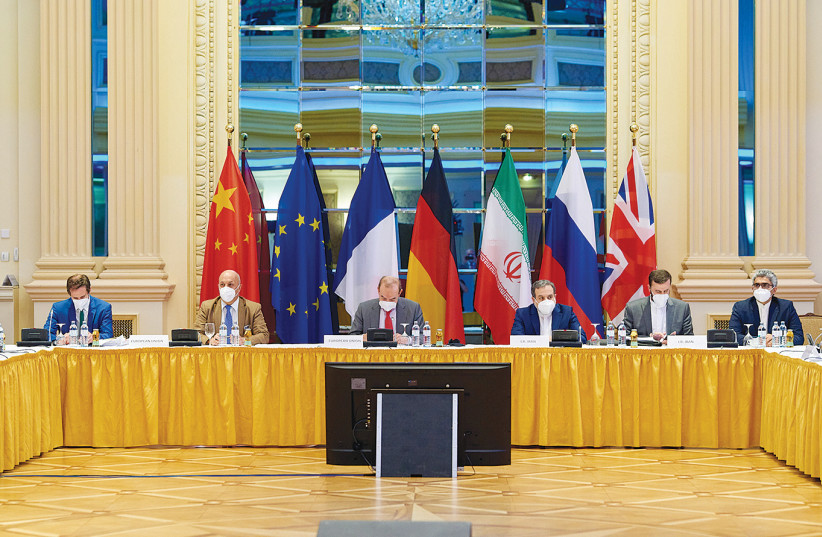Former top IAEA official Olli Heinonen said on Tuesday that new Iranian nuclear violations and revelations could escalate the crisis between the Islamic Republic, the US and the world powers.
On Monday, Reuters reported that the IAEA itself had shared a report with its members indicating that Iran has made new progress in its work on enriched uranium metal, despite Western warnings that such work threatens reviving the JCPOA Iran nuclear deal.
“On 14 August 2021, the Agency verified... that Iran had used 257 g of uranium enriched up to 20% U-235 in the form of UF4 (uranium tetrafluoride) to produce 200 g of uranium metal enriched up to 20% U-235,” the IAEA said.

Uranium metal can be used as part of the core of a nuclear weapon and all countries involved in negotiations agree that it has no civilian nuclear use.
While the uranium metal news is problematic, Iran has been producing uranium metal since February, so the latest report could be downplayed as just more of the same and no radical change to the current standoff.
However, Heinonen, currently a fellow of the Stimson Center, said, “What is in [at] stake is also the credibility of the IAEA verification regime and the role of the IAEA Board as its guardian.
“Indications that Iran may have undeclared nuclear material are very strong. This, together with the fact that Iran has maintained its nuclear weapons-related documentation, which was confirmed recently by [outgoing] president [Hassan] Rouhani, calls for action by the international community,” he said.
Moreover, Heinonen clarified, “Delaying the action again in order to maintain ‘a constructive negotiation atmosphere’ is not going to bring the JCPOA in[to] force. Actually, it will further undermine the credibility of the deal.”
The former IAEA official seemed to indicate that the timing of the announcement, along with other revelations and the general tone of brinksmanship which new Iranian President Ebrahim Raisi has taken, heighten the danger of a nuclear crisis.
Heninonen is not the only one spooked by the ongoing march forward of Iran’s nuclear program and its now nearly three months cutting off of critical aspects of IAEA inspections.
While Heinonen regularly warns about Iran’s nuclear program, Kelsey Davenport, director for nonproliferation policy at the Arms Control Association, usually presses to be more understanding of Tehran’s moves.
Despite her group’s general orientation of supporting JCPOA negotiations, she wrote on Monday in the Atlantic Council blog,, “Tehran’s failure to fully cooperate with the IAEA’s investigation into past possible undeclared nuclear materials and activities risks derailing progress” on the JCPOA.
She noted that “Tehran has argued that the IAEA’s investigation into its pre-2003 nuclear program was closed as part of the JCPOA and that the current line of questioning is politically motivated,” but then said, “This line of argument – that the IAEA cannot revisit Iran’s past activities and that its current efforts are politically motivated – does not hold water.”
Davenport warned that the IAEA Board may need to issue another threatening resolution as it did in June 2020 and that if that does not produce results, “the board could refer Iran to the United Nations Security Council, as it did in 2006 when Tehran repeatedly refused to comply with IAEA requests for information about undeclared nuclear activities.”
